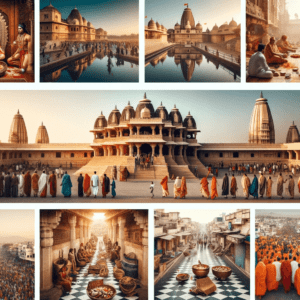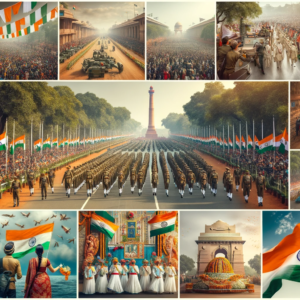Maha Shivratri 2024: Significance of Maha Shivratri rituals, Fasting, Pooja happens on the fourteenth day after the full moon in the month of Falgun. It’s a big day for people who believe in Lord Shiva. They look forward to it every year. This day is special because it represents the coming together of Shiva and Shakti.
Let’s see when it falls and the best times to celebrate it in the year 2024.
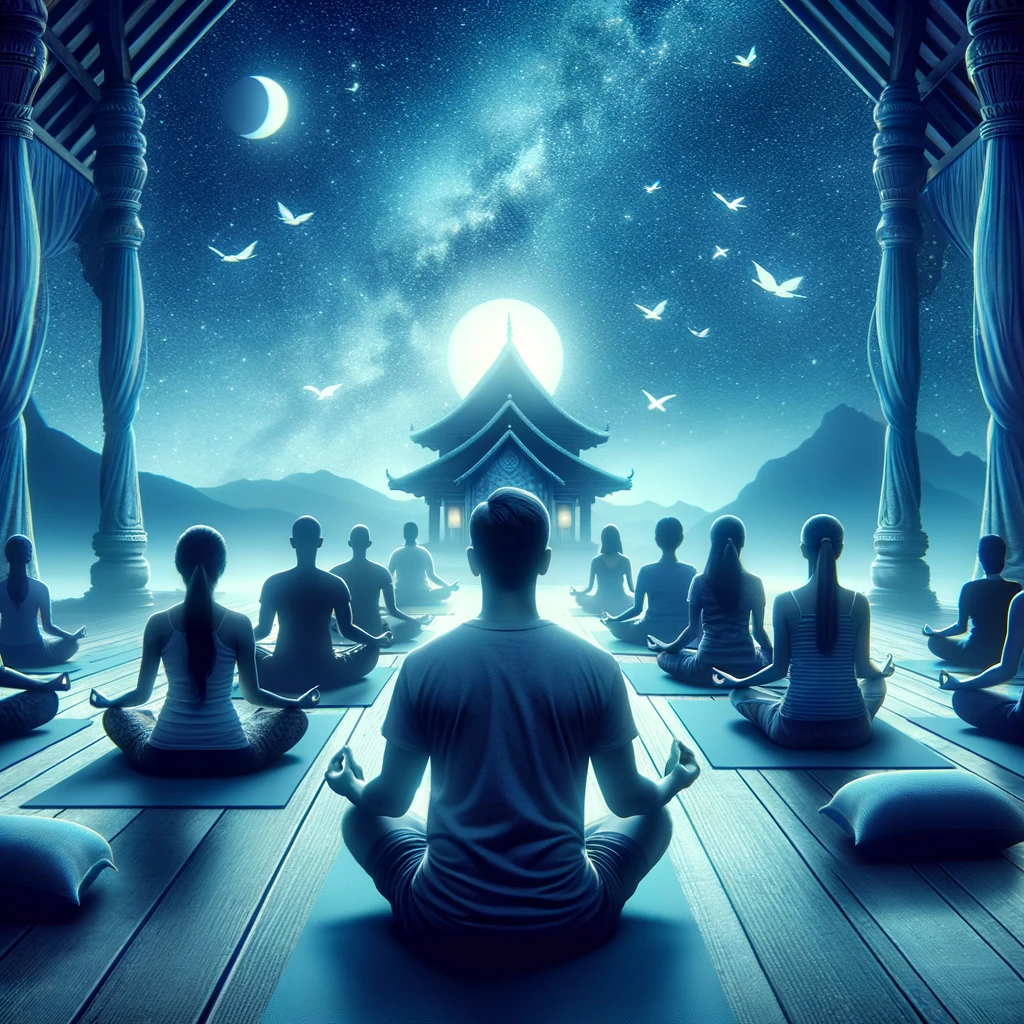
Maha Shivratri is a Hindu festival that celebrates Lord Shiva. It is a time of hope, peace, and victory for the followers of the religion. The festival has a long history of spiritual significance, and it is a time for people to reflect on their potential to transform themselves.
The festival is celebrated on the 14th night of the dark fortnight in the month of Phalgun. It is a time for people to come together and celebrate the life of Lord Shiva. The festival is a way to promote peace and spirituality and to help people make positive changes in their lives.
Take a look at the Shivratri dates for 2024, and know the history, significance, and ways in which people celebrate the festival.
What is Maha Shivratri?
Maha Shivratri, which translates to “the Great Night of Shiva,” is a major Hindu festival observed in honor of Lord Shiva, one of the principal deities in Hinduism known for his role in creation, protection, and transformation within the universe. It falls on the 14th day of the dark fortnight in the Hindu month of Phalguna, which typically corresponds to February or March in the Gregorian calendar. In 2024, Maha Shivratri will be celebrated with great devotion and enthusiasm.
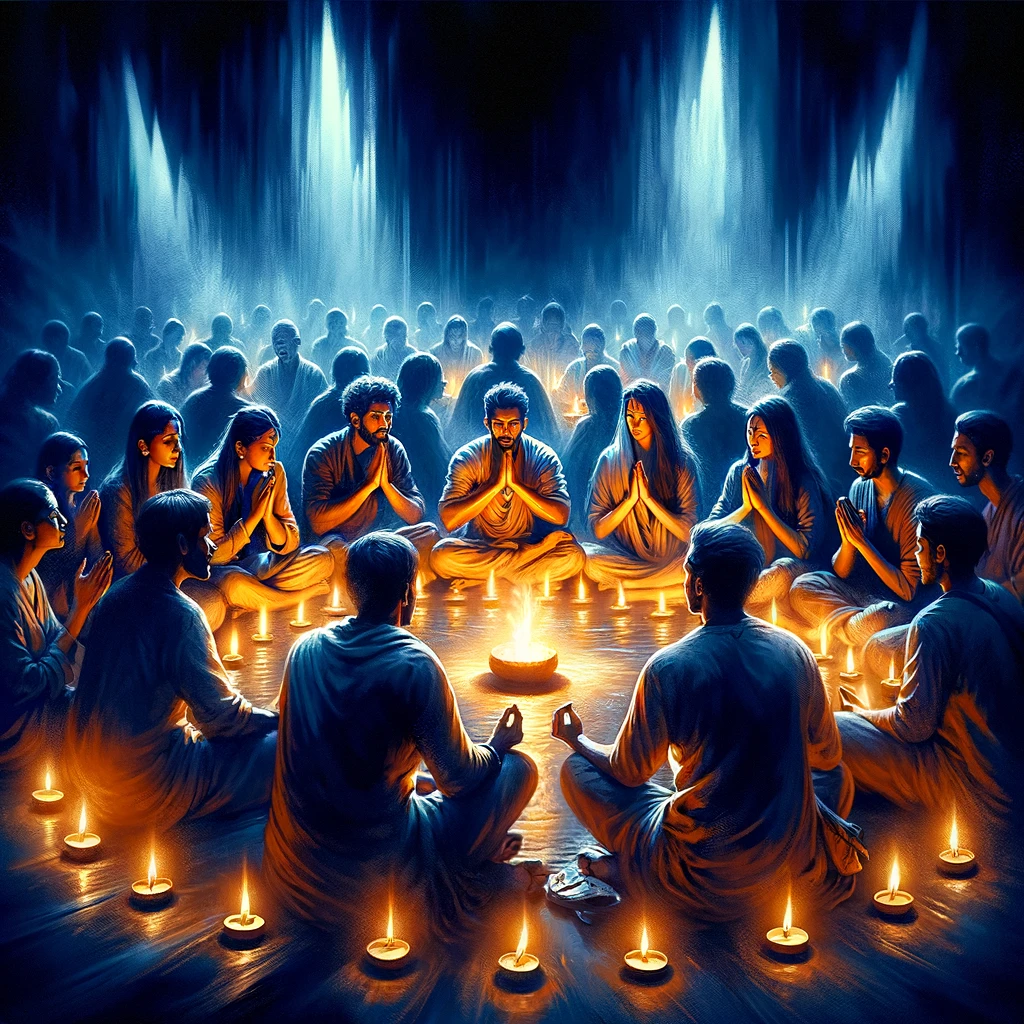
Maha Shivratri 2024: Date
The following are the dates of Maha Shivratri in 2024:
9 January 2024, Tuesday – Paush Masik Shivratri
8 February 2024, Thursday – Magh Masik Shivratri
8 March 2024, Friday – Maha Shivratri, Falgun Shivratri
7 April 2024, Sunday – Chaitra Masik Shivratri
6 May 2024, Monday – Vaishakha Masik Shivratri
4 June 2024, Tuesday – Jyeshtha Masik Shivratri
4 July 2024, Thursday – Ashadha Masik Shivratri
2 August 2024, Friday – Shravan Masik Shivratri
1 September 2024, Sunday – Bhadrapada Masik Shivratri
30 September 2024, Monday – Ashwin Masik Shivratri
30 October 2024, Wednesday – Kartik Masik Shivratri
29 November 2024, Friday – Margashirsha Masik Shivratri
Maha Shivratri 2024: Why Is Maha Shivratri Important & How To Celebrate?
One of the most important aspects of Maha Shivratri is the celebration of the Tandava, the cosmic dance of creation, preservation, and destruction. The Tandava is a powerful dance that is believed to symbolize the cyclical nature of existence and the constant flux of life. Significance of Maha Shivratri The dance is a way of expressing one’s deep desire and commitment to living a life of spirituality and service to others.
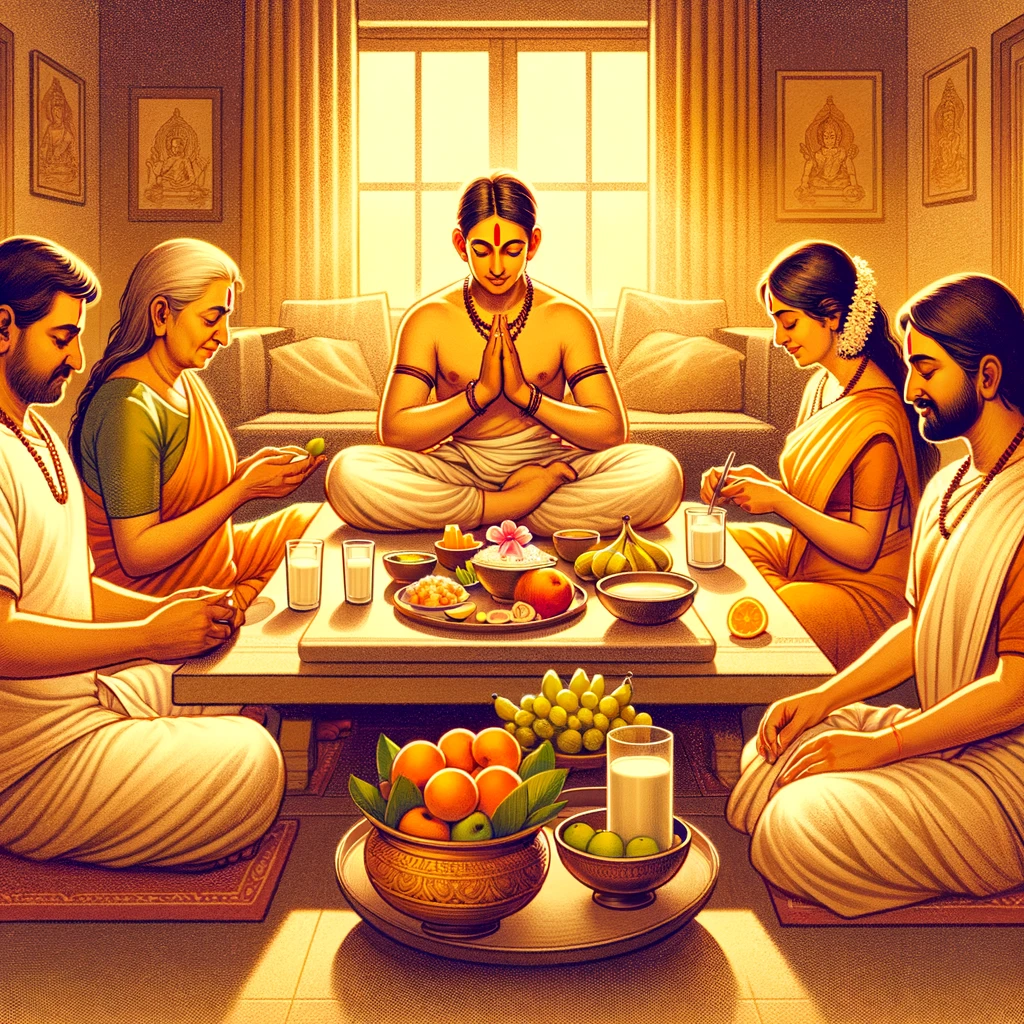
Another important aspect of Maha Shivratri is the observance of fasts and prayers. Because Protests are organized by local communities and people visit temples to pray for Lord Shiva. The prayers are focused on one’s health, wealth, and success. People also make donations to the local temples and charities in their honor.
Maha Shivratri is a time for people to come together and celebrate the life of Lord Shiva. The festival is a way to promote peace and spirituality and to help people make positive changes in their lives.
Maha Shivaratri Muhurta
- Maha Shivaratri on Friday, March 8, 2024
- Nishita Kaal Puja Time – 12:07 AM to 12:56 AM, March 9
- Duration – 00 Hours 49 Mins
Significance of Maha Shivaratri:
The festival commemorates several key events in Hindu mythology related to Lord Shiva, including his marriage to Goddess Parvati and his manifestation as the Shiva Lingam on this night. It is believed that worshipping Shiva on this day absolves sins, aids in attaining liberation, and brings blessings for health, Maha Shivratri rituals marital harmony, and prosperity. Devotees fast, perform rituals, chant prayers, and make offerings to Shiva Lingam in temples and shrines, seeking the favor of the god.
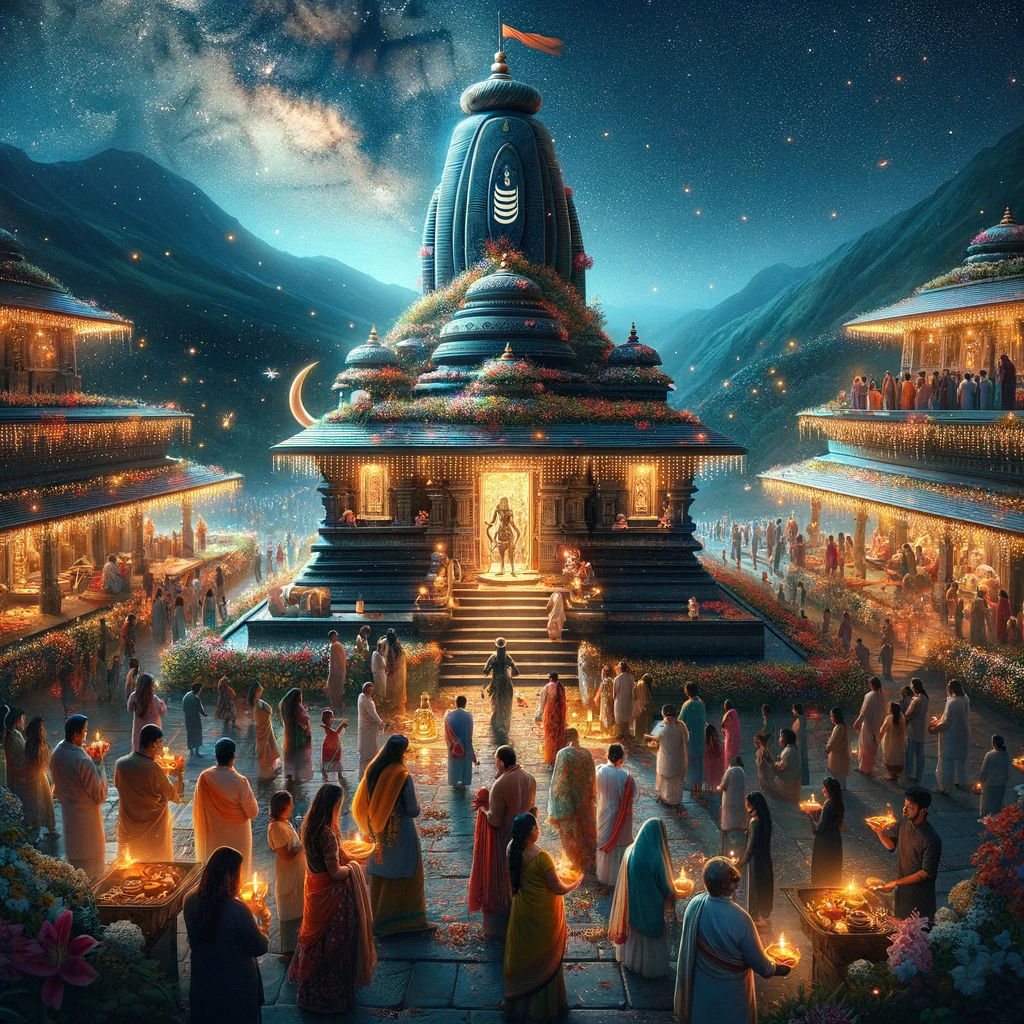
- Celebrating Lord Shiva: This night marks the convergence of Shiva and Shakti, representing the union of consciousness and energy. However, Devotees pay homage to Lord Shiva, seeking blessings for spiritual growth, overcoming ignorance, and achieving inner peace.
- Marriage of Shiva and Parvati: According to legends, Similarly Maha Shivratri rituals commemorates the celestial wedding of Lord Shiva and Goddess Parvati.
- Overcoming Darkness: Symbolically, the night signifies overcoming the darkness of ignorance and negativity within ourselves.
Traditions and Customs
- Fasting: Many devotees observe a strict fast on Maha Shivratri, consuming only fruits, milk, and water. Some may not eat at all until the next morning.
- Night Vigil: Devotees stay awake all night, participating in Shiva prayers. Meditating, and singing hymns and devotional songs in praise of Lord Shiva.
- Ritual Worship: The ritual worship of Shiva Lingam, known as “Pooja,” involves bathing the Lingam with milk, water, honey, and other sacred items, symbolizing purification of the soul.
- Offerings: Believers make offerings of leaves from the Bilva tree, which is considered dear to Lord Shiva, along with flowers and fruits.
- Visiting Temples: Thousands of pilgrims visit Shiva temples to offer prayers. Maha Shivratri rituals Some of the most revered sites during Maha Shivratri include the twelve Jyotirlinga shrines scattered across India.
How to Celebrate Maha Shivratri
- Attend Temple Services: Participate in the special services held at local Shiva temples, which often include elaborate Poojas and Bhajans.
- Home Worship: Set up a small Shiva Lingam at home for worship. Offer Bilva leaves, water, milk, and other sacred offerings while chanting Shiva mantras.
- Community Gatherings: After that Maha Shivratri rituals Many communities organize night-long programs featuring spiritual discourse, devotional music, and cultural performances.
- Practice Yoga and Meditation: Embrace the spiritual essence of Maha Shivratri by practicing yoga and meditation, focusing on self-reflection and inner peace.
- Educate and Share: Maha Shivratri pooja Use the occasion to learn more about the philosophical aspects of Shiva and share this knowledge with family and friends.
Celebrating Maha Shivaratri:
- Firstly One day before Shivaratri Vratam, usually on Thrayodashi, devotees should eat only once.
- Secondly On Shivaratri day, after completing morning rituals. Maha Shivratri pooja Devotees should pledge (Sankalp) to observe a full-day fast and eat the next day.
- During this pledge (Sankalp), devotees commit to self-determination throughout the fasting period, seeking Lord Shiva’s blessings for a successful completion.
- Hindu fasts are strict, and people seek God’s blessings before starting them to finish successfully.
- On Shivaratri day, devotees should take a second bath in the evening before performing Shiva Puja or visiting a temple.
- Shiva Puja should be perform during the night, and devotees should break their fast the next day after bathing.
- Fourthly Devotees should break their fast between sunrise and before the end of Chaturdashi Tithi (the fourteenth lunar day) to gain maximum benefits.
- Some believe that the fast should only be broke after the Chaturdashi Tithi is over. After that While others believe that both Shiva Puja and breaking the fast should occur within the Chaturdashi Tithi.
- Shivaratri puja can be perform once or four times during the night. Meanwhile with the night divided into four parts called Prahar for those who perform Shiva Puja four times.
Whether you’re a devout follower or simply curious about Indian culture. So, Maha Shivaratri offers a unique opportunity to experience the beauty of devotion and spirituality. Visit your local Shiva temple, also participate in community gatherings, or simply observe the day with quiet reflection. Remember, the true essence of the festival lies in connecting with your inner self and seeking blessings for a brighter future.
Conclusion
Maha Shivratri is not just a religious observance but a spiritual journey that offers an opportunity to introspect. Cleanse sins and make a fresh start. Whether through devout worship, fasting, meditation, or simply by appreciating the cultural traditions, participating in Maha Shivratri can be a profoundly enriching experience. Maha Shivratri 2024: Significance of Maha Shivratri rituals, Fasting, Pooja Let’s embrace the essence of this sacred night and seek the blessings of Lord Shiva with sincere devotion and faith.
May Maha Shivratri 2024 bring you closer to the divine and Significance of Maha Shivratri fill your life with peace, happiness, and prosperity. Om Namah Shivaya!





